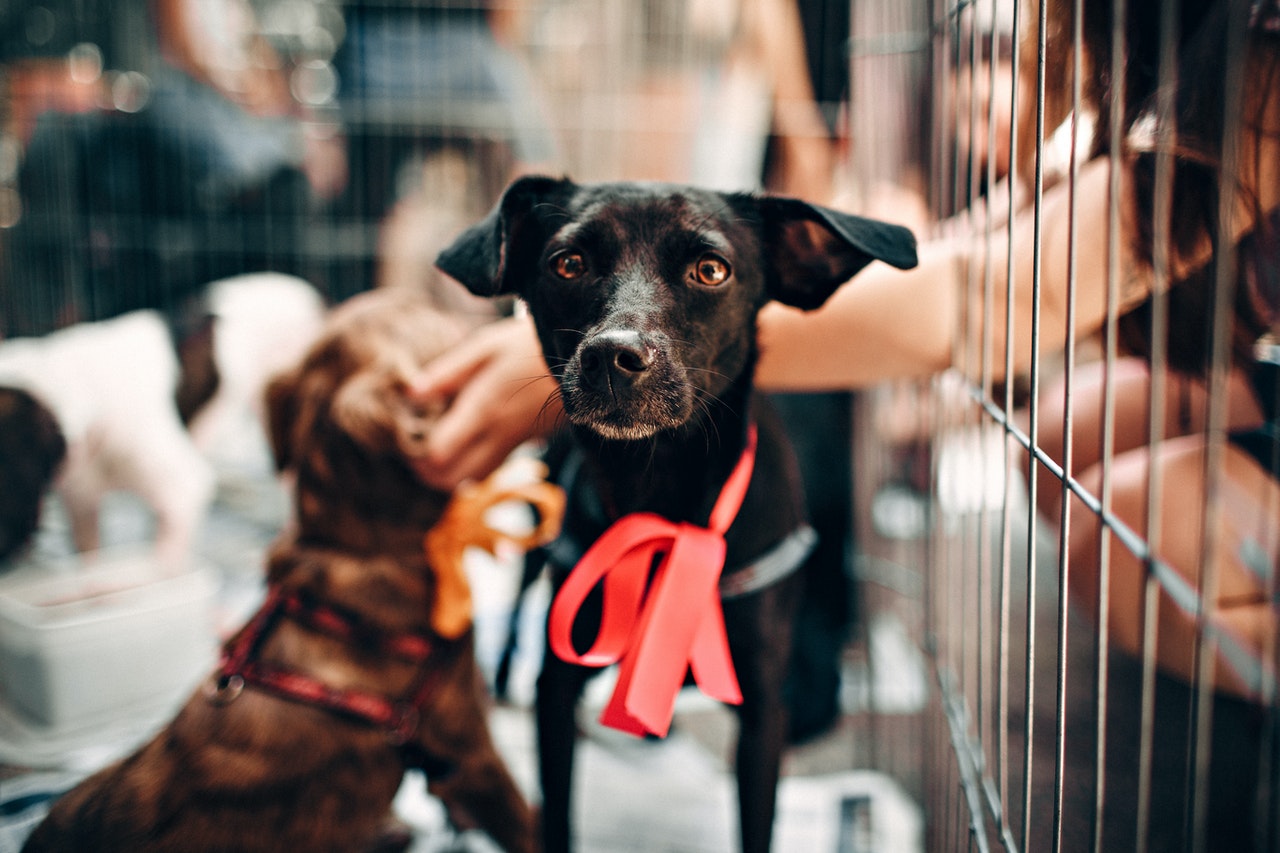11 Things to Be Aware of When You Adopt a Rescue Dog

You don’t need to wear a cape and fight bad guys to be a hero these days.
You can simply rescue and adopt animals in distress.
When you adopt a dog, you’re saving two lives – yours and the dogs'.
Because dogs can greatly improve your life.
Dog adoption may be quite challenging at first but they are worth every struggle and hurdle.
As they say, “There is no greater love than the love of a dog.”
Before you do the heroic act of adopting a rescue dog, here are 11 things you need to be aware of.
11 Things to Be Aware of When You Adopt a rescue dog
1. Are you ready for it?
First thing you need to ask yourself before adopting is if you’re ready.
Having a dog is like having a baby.
You have someone who will depend on you to feed them, bathe them, and watch over them.
Are you ready to be an instant parent?
Do you have the heart and the stomach for the not-so-cute stuff?
Rescue dogs usually suffer from anxiety. They may not have been properly house-trained and could eliminate around the house.
You’ll need to clean up after them.
Dogs need to be walked. They need to exercise to keep them healthy and to release their energy. You’ll need to find time for that.
Sometimes they’ll wake you up at an ungodly hour because they need to go, or they’re bothered by a noise outside.
You’ll have to be patient with them when this happens.
They could get sick and would need extra care and attention.
You’ll have to be there for them.
Be ready to pay for vet visits and medicines, and even wrestle with them so they’ll get their proper dose.
You’ll need to bathe them, clean their ears, cut their nails, and inspect their bodies for cuts, injuries, or lumps every once in a while.
Be aware of these responsibilities when you adopt a rescue dog.
2. There will be an adjustment period
Adopting a rescue dog entails a lot of adjustment. Both for you and your dog. For the first few weeks or months at least, your dog will try to make sense of his new environment.
It’s good if he used to have a home or family. He already knows what to expect.
But if you’re adopting a street dog or dogs used for entertainment like fighting and racing, the adjustment could be longer and more challenging.
You may need to seek professional help to train your dog and help him adjust to his new life.
Remember to take it slow and be patient.
The new setup is more terrifying, intimidating, and overwhelming for your dog than you may think.
Give him time to take it all in.
Pressuring your dog will only delay the progress and add to his stress level.
Don’t worry. The adjustment period is followed by fun adventures.
3. Your timetable will change
You won’t own your time anymore.
You can’t just up and leave for days or weeks and leave your dog behind.
You either bring your fur baby with you, leave him in a kennel, or hire a dog sitter.
You can still go out with your friends on a weekend night but you’ll soon realize that you’d rather stay in and spend quality time with your dog.
You’ll turn down a night out and party invitations because you’ve already made a plan…with your dog.
Your waking time will be earlier. You wouldn’t even need an alarm clock anymore.
Your dog will eagerly wake you up in the morning excited to spend another day with his hero and best friend.
You’ll rush home because you miss your dog.
Yes, your schedule will revolve around your furry friend because he will slowly become your world, and you wouldn’t want it any other way.
4. They may have special medical needs
Dogs at the shelter come from different walks of life.
Some have been abandoned in the streets. Others have never known what home feels like having been rescued from puppy mills or fighting rings.
Dogs who come from mills usually are from facilities with unsanitary and unsafe conditions.
Because of the wrong breeding process, they may come out with disabilities.
These dogs will need special medical or health attention. Some dogs are already old with existing health conditions that come with age.
Before you adopt a rescue dog, be aware of the dog’s health status and see if you have the capacity to take care of them.
You would need more time, effort, and money for special needs dogs.
5. They can have behavioral problems

There’s no such thing as a bad dog. Only cruel, irresponsible owners.
Dogs who were raised to fight like pit bulls usually develop behavioral problems.
But proper training can help.
Anxiety is common in rescued animals. They fear being abandoned again.
Some may have received harsh treatment from the humans they encountered.
It’s common for some owners to drop their dogs in the shelter when they get pregnant so others were born in the shelter.
Dogs are innately good. They just need to be taught and reminded.
If you can’t train them, find an expert who can. Before you adopt a rescue dog, consider their background story so you can better understand how they react and know how to handle them.
If it’s your first time to adopt and you’re a little hesitant to take challenging dogs, ask the shelter for other options.
There are rescued dogs who have been trained, are housebroken, are great with kids and other pets, and require minimal care.
6. Is your home ready for your dog?
Do you have your dog’s basic needs?
Rescued dogs don’t usually have any idea what the inside of a home looks like.
They wouldn’t know what to expect or how to behave.
Is your house dog-friendly or dog-proof?
These are the items you need before you bring home your new fur baby:
- Dog bed or blanket
- Toys (or you can make your own)
- Food and water bowl
- Leash
- Dog food and treats (ask the shelter if they’re allergic to anything)
- Dog shampoo and other grooming products
- Towel
- Their prescribed medications or vitamins
Additionally, you should dog-proof your home by keeping these items away from their reach:
- Foods that are toxic to them such as chocolates, nuts, grapes, and raisins
- Garbage
- Paper products like toilet paper (they tend to chew on or eat it)
- Mothballs
- Your wallet
- Remote control and other gadgets
The thing is, you’ll never know what your dog will play with or chew until you get to know them.
Your dog may be fond of chewing shoes so it’s better to keep those away before it happens.
If you’re rescuing a senior dog who has joint problems or is slowing down, a ramp or padded climbing ladder may be necessary.
You may also need a stroller since walking could be too painful for him.
If possible, keep all the things he requires downstairs. When you adopt a rescue dog, be aware of their needs.
7. Where can you adopt a dog?
From puppies to senior dogs, any breed, size, and color, there are online pet finders where you can browse and look for your new best friend.
You can check their profiles and get to know them and their background.
Online scouting is good if you have allergies to some dog breeds.
You may also visit a rescue or dog shelter near you so you can see for yourself the eager and excited wagging tails waiting to be rescued.
8. How much does it cost to adopt a dog?
Now that you’re ready to be a hero and adopt a rescue dog…
How much are you going to pay?
You can’t put a price tag on a dog’s love and devotion. But there's an adoption fee.
The cost of adopting a dog varies depending on the organization or shelter.
Factors such as the dog’s age, supplies, and veterinary care they received can also add up to the price.
Dog adoption fee ranges from $50 to $350. Sometimes even more.
Some shelters organize events where they offer a low-price rehoming fee for those who are eager to bring home their dog baby.
Indiana animal shelters, for example, have 'Empty the Shelters' week where you can adopt a rescue dog for a much lower fee.
It’s cheaper and more humane to adopt than to buy from pet shops.
You’ll be helping more animals this way by not supporting cruel puppy mills and keeping dogs off the streets and the kill list.
9. Complete the process
Once you’ve decided which dog to adopt and how much you’re willing to pay for the adoption fee, fill out the application form.
Depending on where you’re getting your new fur baby, you can download, print out and fill out the form and send it online or by mail.
You may also drop it off and meet the angel you’re adopting.
10. Prepare for an interview
Shelters want to make sure they’re sending off the dog to someone capable and able.
They will interview you so they can assess if you and the dog are the right fit.
They may also visit your home and do a background check to see if your lifestyle and situation are suitable for the dog.
Some questions may be personal but it’s only to gauge if the adoption will work out.
11. Meet and greet before going home
It’s important to meet the dog before bringing him home.
Some dog owners would bring their other pets to see if they would get along with the new member of the pack.
This will make the adjustment period for your new dog easier as he’s already familiar with you and your other pets before finally going home.
Conclusion
Adopting a dog is more than just getting a new pet. It’s an act of kindness.
What could be more fulfilling than saving a life?
You don’t only help the dog you rescue but you also help lower dog overpopulation.
You reduce the number of dogs in the streets and the kill shelters.
You can get your home ready for another dog. Or educate yourself on the things you’ll need to be aware of when you adopt a rescue dog.
But your heart will never be prepared for the overwhelming love and joy he’ll bring into your life.
Be the superhero you were born to be. Adopt a rescue dog today.
About The Author
Lux is a doting fur mom to eight lovely dogs. She's a licensed pharmacist, a blogger for ten years, and a certified copywriter. When her nose is not buried in a fiction novel, she's using her penchant for words to help brands tell their story and connect with their audience.
Check out her personal blog https://www.aboutlifeandlove.com/
Leave a Reply
You must be logged in to post a comment.


